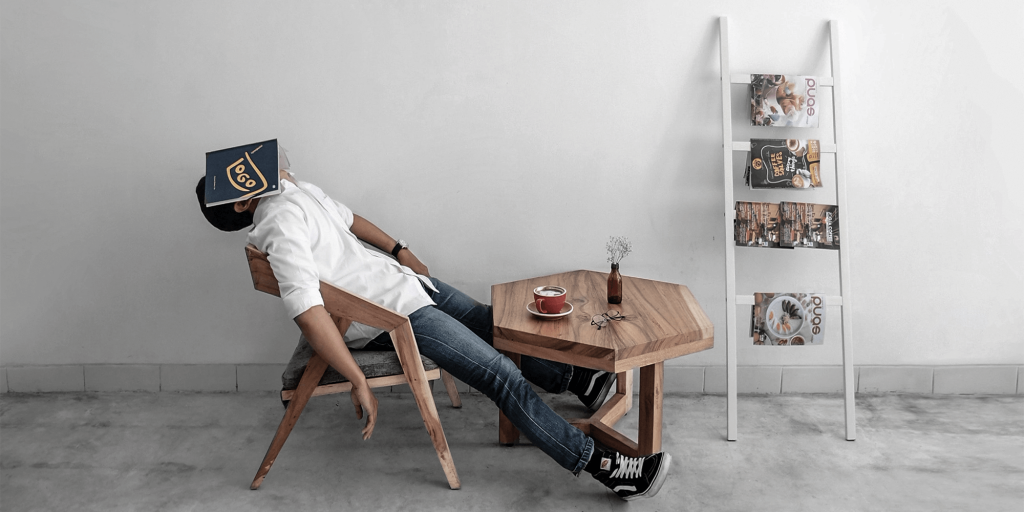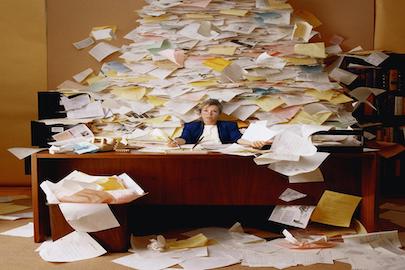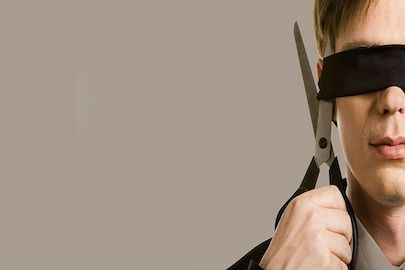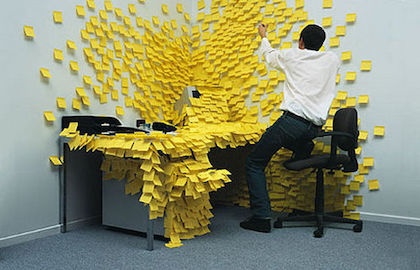PROCRASTINATORS.
We are all sinners, what type are you?
Procrastination isn’t just universal among humans; the entire universe procrastinates. We are all sinners, find out which type are you!
Estimated reading time: 8 minutes, 11 seconds. Contains 1639 words

By Emmanuel Perez, aka the Talent Surgeon.
The Talent Surgeon has been a contributor ghostwriter for People Place, among other well-known HR digital magazines in Europe.
The Talent Surgeon knows how to touch subjects directly or indirectly related to our day-to-day lives and he surely brings the right antidote to us all.
Procrastination isn’t just universal among humans; the entire universe procrastinates. Newton’s First Law of Motion says:
“a body at rest will stay at rest unless compelled to change state”

We all are procrastinators, oh yes!…brothers & sisters we are! each in our own way. Therefore,
there isn’t “a strategy” that works for everyone, and neither is “holy water” that will wash away our procrastinators’ sins. There is still hope for us though! and here are some recommendations that can help in the short term.
However, to find the absolution to the bad habit of leaving everything to the last minute, it is necessary to know what kind of procrastinator each one of us we are, but let’s do it being aware that recent studies indicate that certain brain structures are different in procrastinators’ brains, and that brothers and sisters, is perhaps beyond our brain re-formating capabilities.
 Clinical psychology doctor Ellen Hendriksen has studied this issue for years, analyzing the behavior of those who procrastinate and the peculiarities of each one. In conclusion, Hendriksen classifies them into three different groups, what makes it easier to better understand the reasons for their behavior and to find more personalized strategies in order to help correct it.
Clinical psychology doctor Ellen Hendriksen has studied this issue for years, analyzing the behavior of those who procrastinate and the peculiarities of each one. In conclusion, Hendriksen classifies them into three different groups, what makes it easier to better understand the reasons for their behavior and to find more personalized strategies in order to help correct it.
Let’s number them, and get to it!
 Type #1: The Avoider
Type #1: The Avoider
“He or she procrastinates to avoid unpleasant emotions, like stress, uncertainty, or feeling overwhelmed.”
This is classic procrastination. We’re not necessarily avoiding the task, we’re avoiding the negative emotion that goes along with that task.
For example, we may avoid an overtly stressful or high-stakes task, like studying for exams or writing our best man speech. This makes sense; it’s unpleasant to feel the pressure or worry we’re going to bomb, so instead, we blissfully watch the entire “Star Wars series” and are rewarded with not feeling bad.
But we may also procrastinate on tasks where we simply don’t know what to do next. Here, we avoid the negative emotions of doubt, uncertainty, or simply feeling stupid. Is very common to accumulate a pile of unwanted items in the garage for years, boxes of paper, clothing, tools even gasoline sitting next to easily ignited items, simply because we don’t know how to get rid of them easily when a simple online search for how to dispose of each item can get us on the way.
Avoidance can be small scale: we might avoid writing a sympathy note because we don’t know what to say, don’t know their postcode, or can’t bother to look for stamps. But it can also be large-scale: we might aspire to grad school, but let years go by because we’re not exactly sure what we want to do, how to start the process, or if we actually can hack it. We might want to break up with our partner, but can’t bring ourselves to do it, or never find the right time.
But in truth, if you’re an Avoider, procrastination doesn’t fully let you avoid feeling bad. On some level, we feel guilty, pressured, or anxious. We’re not even fully able to enjoy “ The Force Awakens, episode 7 ” or even several slices of banana bread, or visiting “Do Nothing For 2 Minutes.com”, which apparently is an actual thing…
All in all, Avoiders stretch the negative emotion they would feel, or think they would feel, facing their task into a long, low-grade feeling of negative emotion, all while they procrastinate.
 Type #2: The Optimist
Type #2: The Optimist
“He or she procrastinates because they think things won’t take that long, or that they have more time than really do.”
“It’ll just take a few minutes.” “No worries, I’ll get it done.” “I just have to do one more thing.—I won’t be late.” Optimists chronically underestimate their timeframe or overestimate their abilities.
Viewed through a charitable lens, this is overconfidence. But for those left hanging or let down by this type of procrastinator, it may seem more like delusion. In the moment, we feel sure we can leave all our holiday shopping to a few days before Christmas, or squeeze in three errands in three different towns while our kid is at her half-hour piano lesson. But inevitably, time wins out and we find ourselves late, unprepared, and overcommitted.
In this type of procrastination, there is a bright spot. Active procrastinators know they work better under pressure, have a realistic sense of how long a task will take (even if it involves a pot of coffee and an all-nighter), and therefore procrastinate deliberately. If you truly know thyself, active procrastination can be a form of coping that actually works
 Type #3: The Pleasure-Seeker
Type #3: The Pleasure-Seeker
“He or she procrastinates because they just don’t want to do what they are supposed to be doing.”
If you think of yourself as lazy, this is probably you. And in general, it’s perfectly permissible to be a little lazy.
Who among us has never drunk milk straight from the carton, watched a lame TV show because it was too much work to get up to reach for the remote, or let toilet paper tube after toilet paper tube collect because it’s too much work to actually change the roll.
But sometimes it gets out of hand. The Pleasure-Seeker plays, relaxes, or basically does whatever they’re not supposed to be doing. They wait until they feel like doing their work to start, which sometimes never happens.
Pleasure Seeking often gets reinforced because at some point, someone else may jump in and do your task for you—your partner may get fed up and wash the dishes, your group project partners may pick up your slack, or your coworkers might cover your butt. It seems like you get away with it. But in the long run, the Pleasure Seeker breeds resentment and a reputation for being unreliable or a slacker. Other people work around your procrastination, so it seems like there are no consequences, but they’re actually hidden, and come at the expense of your good name
Once you’ve figured out which type of procrastinator you are, here are five things you can do to take action, whether now or…maybe later.
![]()
 Tip #1: Radically accept that you are procrastinating.
Tip #1: Radically accept that you are procrastinating.
Procrastination is a slippery character. It disguises itself as a well-deserved reward, just one more thing I want to do, just a few more minutes of sleep, plenty of time left, and many more justifications.
The reasons feel compelling in the moment. They feel true. You do deserve a break. You are tired. But these are the very symptoms of procrastination—reason after reason not to do your work pops into your brain. If you find yourself justifying your non-work activities over and over again, radically accept that this is procrastination. It’s not a break. It’s not a reward. It’s a choice not to do your work.
Thankfully, radical acceptance is half the battle. Once you’ve accepted that you’re procrastinating, you can decide whether or not you want to address it.
 Tip #2: Change your environment.
Tip #2: Change your environment.
Next, ask yourself what enables your procrastination and ruthlessly cut it out of your life. Is it an app on your phone—YouTube, Facebook, Splitter Critters? Delete it. Seriously. You can always reinstall it later. Is it Netflix? Cancel your subscription, even if briefly. Is it your bed and the fridge? Go to a coffee shop instead of working from home.
This intervention is powerful because it forces you to confront your habits. Once Instagram is gone, if you find yourself shifting your attention to Twitter, you realize you are making a choice in the moment. Pulling the rug out from under yourself may be uncomfortable, but it pokes a stick in the spinning wheels of your procrastination habit and forces you to break the cycle.
 Tip #3: Notice when procrastination stops being pleasant.
Tip #3: Notice when procrastination stops being pleasant.
The next time you procrastinate, watch what happens. At some point, playing Mega Dead Pixel gets old. After the fourth episode of “The Walking Dead,” your brain feels mushy. Whatever you’re doing to procrastinate, at some point it stops being fun.
Notice this and use it as a springboard. When procrastination starts nagging at you, consider switching to something productive. Which brings us to Tip #4.
 Tip #4: Do something easy but productive.
Tip #4: Do something easy but productive.
It’s almost impossible to shift instantly from full-on procrastination to full-on productivity. To transition, you need an on-ramp. Therefore, choose a task that’s easy but moves you ahead rather than continues to spin your wheels. The quickest, easiest thing on your to-do list is often a good bet—call the optometrist, start the laundry, or pay one bill.
Everyone procrastinates differently and everyone pulls themselves out of the mud differently, so be honest with yourself. Choose a transition task that actually moves you forward, not just a different form of procrastination, like checking your email or rewriting your to-do list.
 Tip #5: Limit your to-do list.
Tip #5: Limit your to-do list.
Speaking of your to-do list, consider giving it the equivalent of a buzz cut. This sounds counterintuitive, especially when procrastination is the reason for your backlog.
But a mile-long to-do list has an effect on your psyche; first, it’s overwhelming, which can trigger more procrastination. And second, it’s unrealistic, which can amplify the Optimist’s “this will just take two minutes” mindset.
So consider limiting your to-do list to three items, or five items, or one major and two minor. You can keep a mile-long shadow to-do list in the background, but for any given day, be realistic about what you can get done today. And then? You can play Super Hexagon to your heart’s content.

